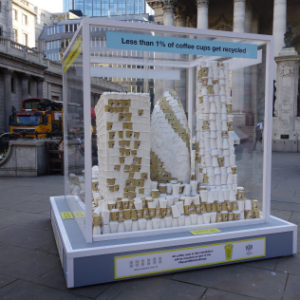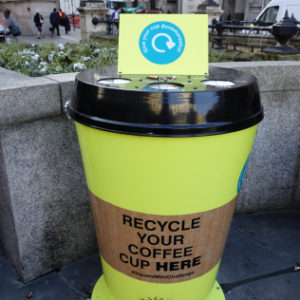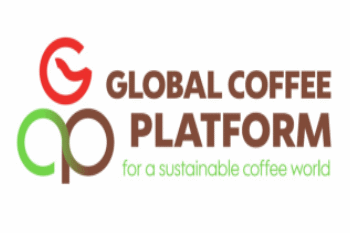Recycling Programmes: How Coffee Shops Engage in the Circular Economy
 The phenomenal growth of coffee shops (in the UK, but also globally) has consequently meant a rise in energy consumption and the production of waste. It’s estimated that 500,000 tonnes of coffee waste is produced in the UK each year, and 7 million disposable coffee cups each day. It is estimated that less than 1% of these coffee cups are recycled. After the issue reached the mainstream media last year as part of Hugh Fearnley Whittingstall’s ‘war on waste’ there have been many developments.
The phenomenal growth of coffee shops (in the UK, but also globally) has consequently meant a rise in energy consumption and the production of waste. It’s estimated that 500,000 tonnes of coffee waste is produced in the UK each year, and 7 million disposable coffee cups each day. It is estimated that less than 1% of these coffee cups are recycled. After the issue reached the mainstream media last year as part of Hugh Fearnley Whittingstall’s ‘war on waste’ there have been many developments.
One of the most common ways in which coffee shops engage in the circular economy is through efforts to recycle coffee cups, with some larger coffee shop chains expanding their recycling programmes. A range of stakeholders in the coffee industry have also begun to coordinate efforts to address the issue of coffee cup recycling (and packaging waste more generally) via the Paper Cup Recovery and Recycling Group. There have been lots of localised efforts too, such as the Square Mile Challenge. There are however several barriers to recycling initiatives ranging from cost, logistics to consumer behaviours.
While one way of reducing landfill from coffee cups is to recycle the another would be to use less of them in the first place – which would also reduce the energy and materials needed to produce them. There are a wide range of reusable cups on offer, from coffee shops themselves and from other brands, such as Keep Cup or Ecoffee Cup. However, reusable cups have been around for a long time, and in many places have just not been adopted in regular use.
Another option is compostable coffee cups, and there a number of options on the market, although many of these need to be sent to a commercial composting facility – the conditions in your average garden aren’t suitable for composting these cups.

Aside from the cups, another area of coffee waste which has experienced a range of innovative ideas is with coffee grounds. Kaffeeform, a German company, have found a way to use coffee grounds to make reusable cups, to Rosalie McMillan who has created a range of jewellery that uses coffee grounds. A more common way to use coffee grounds is in the garden and many coffee shops encourage consumers to take coffee grounds from them.
One of ways to use coffee grounds is for growing mushrooms. Grocycle have been growing oyster mushrooms from waste coffee grounds since 2011. They started collecting coffee grounds from cafes in Plymouth and have continued to expand their operations with a mushroom farm which supplies mushrooms to restaurants and business as well as education activities to help others stat their own mushroom farm. I had great fun growing these, and cooking with them later.
Another use for coffee grounds is to produce energy. Biobean, the first company in the world to industrialise the process of turning coffee grounds into fuel collect coffee grounds and turn them into ‘coffee logs’ which can be used for energy generation. Although initially Biobean’s activities were based around London, they are now expanding to operate around Birmingham.
Then there are lots of different other things being done with coffee waste products, from the Huskee Cup which uses the coffee husks, or chaff (the layer around the coffee bean) to produce coffee cups. The Kickstarter campaign for this has been very popular so far.


